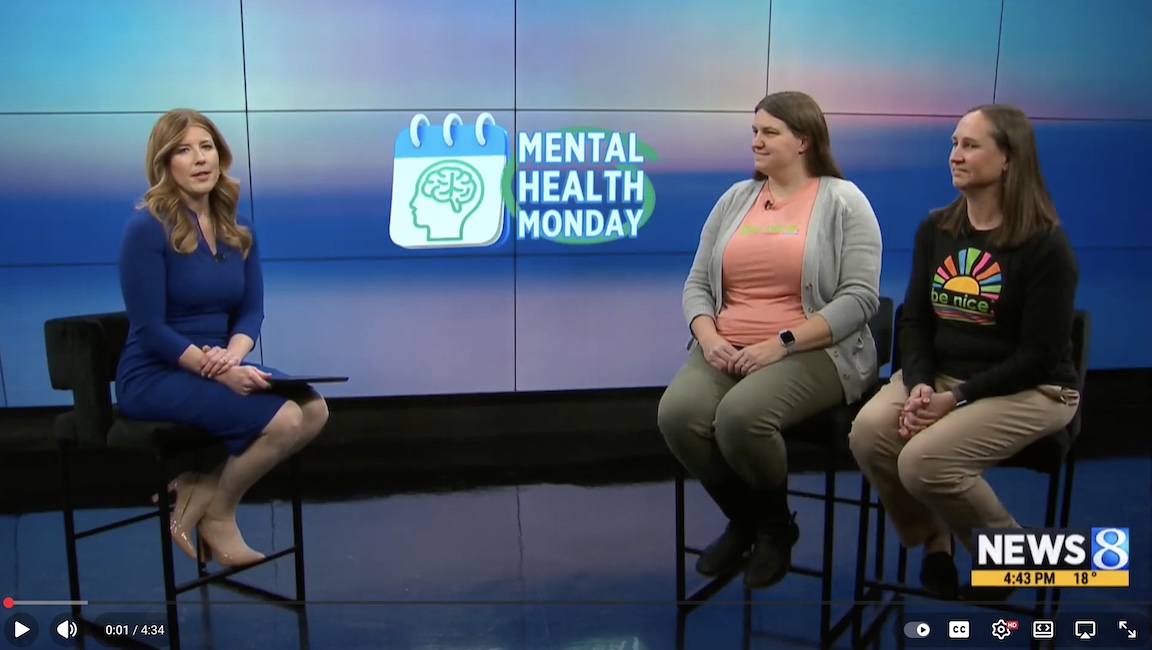High School Counselor Week
Weekly stories, facts, trends, and other information from around the country
December 18, 2025
Without affirmative action, elite colleges are prioritizing economic diversity in admissions
The Miami Times – December 16, 2025
America’s top campuses remain crowded with wealth, but some universities have accelerated efforts to reach a wider swath of the country, recruiting more in urban and rural areas and offering free tuition for students whose families are not among the highest earners.
Students From Mixed-Status Families: What Should You Know About FAFSA This Year?
KQED (CA) – December 15, 2025
In the past two years, the Free Application for Federal Student Aid (FAFSA) has been a particular source of anxiety for mixed-status families — when the college applicant has a Social Security number, but one or both parents don’t, due to their immigration status. According to the National College Attainment Network, the Higher Education Act prohibits the use of data for any purposes other than financial assistance. However, the network warned students and their families that it can no longer “assure” them that data submitted through the FAFSA “will continue to be protected…under the current administration.” Some mixed-status students are concerned that filling out the FAFSA can put their family members at risk of deportation.
 College Admission in Five Years? We’re Already There
College Admission in Five Years? We’re Already TherePost – December 17, 2025
Counselors’ Corner with Patrick O’Connor, Ph.D.
 Early Decision (ED) 1 notifications released… the aftermath and what’s next?
Early Decision (ED) 1 notifications released… the aftermath and what’s next?Post – December 17, 2025
College Advice & Timely Tips with Lee Bierer
The college counselor crisis: A system that’s short-changing America’s students
eCampus News – December 9, 2025
The U.S. is facing a hidden education crisis–and it’s not test scores or curriculum wars. The average student-to-counselor ratio is 376:1, meaning that the average public high school student gets less than one hour of their counselor’s attention for college planning. Most high school counselors are not focused solely on college counseling–they juggle dozens of competing roles, often expected to manage hundreds of students’ academic progress, social-emotional well-being, crisis needs, college and career planning, and more. That same counselor might be developing the master schedule, running mediation sessions, delivering classroom lessons, helping with financial aid applications, supporting undocumented students, and proctoring state tests–all in the same week. The solution isn’t simple, but it starts by recognizing that college advising is essential.
I’m trying to be hands-off as my teen applies to college. It’s been difficult for me, especially when they missed a deadline.
Business Insider – December 16, 2025
At a recent college night presentation, I met with a high school counselor. They gave all parents a startling message: You’re not in the driver’s seat during the application process. You’re not even in the passenger seat. You’re in the back seat. I took the counselor’s advice and decided to step back, letting my teen take the lead as they apply to colleges. At times, this has been tough, but I keep reminding myself that this is their journey.
Flexible, affordable, paying off: Online university degree programs see positive results, survey finds
The College Fix – December 17, 2025
This year, Shenandoah University launched new online MBA programs in cybersecurity and public health, University of Illinois Springfield began offering master’s certificates in business administration, and Benedictine University expanded its online bachelor’s degree programs in psychology and computer scienceThe three examples have a common thread — they’ve all partnered with the for-profit company Risepoint, which helps universities launch and maintain online degree programs.
“Merit” Was the Word of the Year in Admissions. But What Does It Mean?
Inside Higher Ed – December 17, 2025
The Trump administration called on institutions to be more meritocratic in their admissions processes. But what merit is—and how exactly it should be used—remains a contentious topic in higher ed.
Are Diversity Essay Prompts Disappearing? Not Yet.
Inside Higher Ed – November 26, 2025
More than a dozen colleges have removed or edited diversity-related admissions essay prompts. Nevertheless, essays asking about identity and background remain a cornerstone this admissions cycle.
Types of student loans: How to choose between federal or private in 2026
Marca – December 17, 2025
Understanding the different types of loans, and especially how to choose between federal and private student loans, can help borrowers minimize debt burden and maximize long-term financial health. Each has distinct advantages and trade-offs, making it crucial for borrowers to weigh their priorities carefully.
How Students Can Avoid The Full Cost of College
The College Investor – December 15, 2025
In reality, the typical college student pays far less than the published price, and many pay very little or nothing at all. A mix of public policy, institutional aid, employer programs, and academic shortcuts quietly lowers the bill for millions of families each year. And even when it comes to actually writing a check, families pay for college using multiple strategies. Here are a few…
New identity checks reshaping US federal student aid
Biometric Update – December 15, 2025
The U.S. Department of Education (DoE) publicly credited enhanced identity verification measures with preventing more than $1 billion in attempted federal student aid fraud. Rather than allowing FAFSA forms to progress unchallenged to disbursement, the department now flags certain applicants for heightened scrutiny, requiring that those individuals present a valid, unexpired government-issued photo identification either in person or via a live video conference before aid dollars can be released.
Subscribe to our Weekly Emails
Holiday Scholarships
sponsored by Fastweb
Share this list of scholarships for your students before the winter break.
Understanding Cost and Value in the College Search
Siena College Admissions Blog – December 11, 2025
Tuition numbers are easy to compare, but they do not always tell the full story. Families want to understand what they will actually pay and whether the experience will be worth it for the student. This guide offers simple ways to think about cost and value during the search process and gives students a clearer picture of what to look for as they explore colleges.
A Guide to Financial Aid
Tufts Admissions Blog – December 10, 2025
December can be a busy time of year and that’s especially true for high school seniors in the midst of the college application process. This week, we’re sharing several helpful tips for navigating the financial side of your college search.
Teens with social anxiety rely heavily on these unhelpful mental habits
PsyPost – December 12, 2025
New research suggests that adolescents with high levels of social anxiety rely heavily on unhelpful mental habits to manage their daily stress. These young people do not necessarily lack positive coping skills, but they appear to lean disproportionately on negative strategies. This specific pattern of behavior holds true regardless of the teenager’s age or gender.
Teen AI Chatbot Use Surges, Raising Mental Health Concerns
Scientific American – December 11, 2025
Artificial intelligence chatbots are no longer a novelty for U.S. teenagers. They’re a habit.A new survey offers the clearest national snapshot yet of how U.S. teens are using AI.
Use AP Credits to Graduate From College in 3 Years
U.S. News & World Report – December 16, 2025
For students looking to trim time and cost from their college degree, the process often begins in high school. Students can use Advanced Placement and dual enrollment courses to bank college credits. Here are some things to know that may help you complete a bachelor’s degree in three years rather than the traditional four as a full-time college student.
Viewpoints: My son struggled in school until finding Career and Technical Education
Tampa Bay Times (FL) – December 17, 2025
As a mom, nothing prepares you for watching your child struggle in school, especially when you know how bright and capable they are. It wasn’t until a school counselor listened — really listened — that we learned about a different path…
Districts provide more career education, so students can find their passion sooner
EdSource – December 16, 2025
With the goal of preparing students for life after high school, Career Technical Education (CTE) either places them directly into careers, gives them a head start, or simply shows them what it’s like to work in a certain field. Districts have expanded their offerings into elementary and middle schools, so students can learn what they like early on. As districts offer more CTE courses, enrollment has increased.



